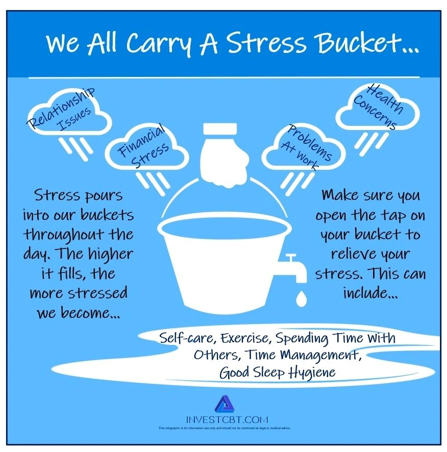Managing our stress is an important aspect of looking after our general wellbeing and emotional health. Stress is useful for us in small doses and our stress response is a natural part of our human biology which helps us to survive however long-term chronic stress can start to impact both our physical and mental health so use this as a prompt to check in about how your stress levels are today.
On this theme, at the start of the academic year on the 1st September, HeadStart were invited to River Tees Academy Trust to deliver staff wellbeing on their PD day. The theme was focused on stress awareness to help staff develop healthy coping strategies to manage their stress levels and to be able to recognise the signs of stress both for themselves and for their colleagues.
We delivered to 114 staff over the day and the workshops included:
- (Lots of fun and laughter during the ice-breaker!)
- What is stress?
- Fight, flight, freeze response and the nervous system
- Physiological and psychological symptoms of stress
- Common stress behaviours
- Stress bucket management tool and activity
- Healthy v unhealthy coping strategies
We had some insightful, honest and engaging conversations with all of the groups with common themes cropping up throughout the day highlighting stress is a common human experience we all have so remember to reach out and talk to trusted people around you.
Positive feedback was received from staff who attended and they highlighted lots of ‘take-aways’ from the training that they could put into practice such as:
- Ways to cope better
- Breathing techniques
- Stress bucket tool
- Keeping perspective
- Circle of control
- Gratitude
- Taking time out
- Making sure rest and recovery is included
- Ways to reduce stress
- Understanding that self-care is important
- Work/life boundaries
- Perfectionism v good enough
And many more!
We discussed the importance of recognising the early warning signs of stress in yourself and others as part of an early intervention and prevention approach to prevent stress from rising too high. Consistent practices to offer a protective buffer are key!
Here’s a 2 minute video about the stress bucket: Stress Bucket
Published: September 5


